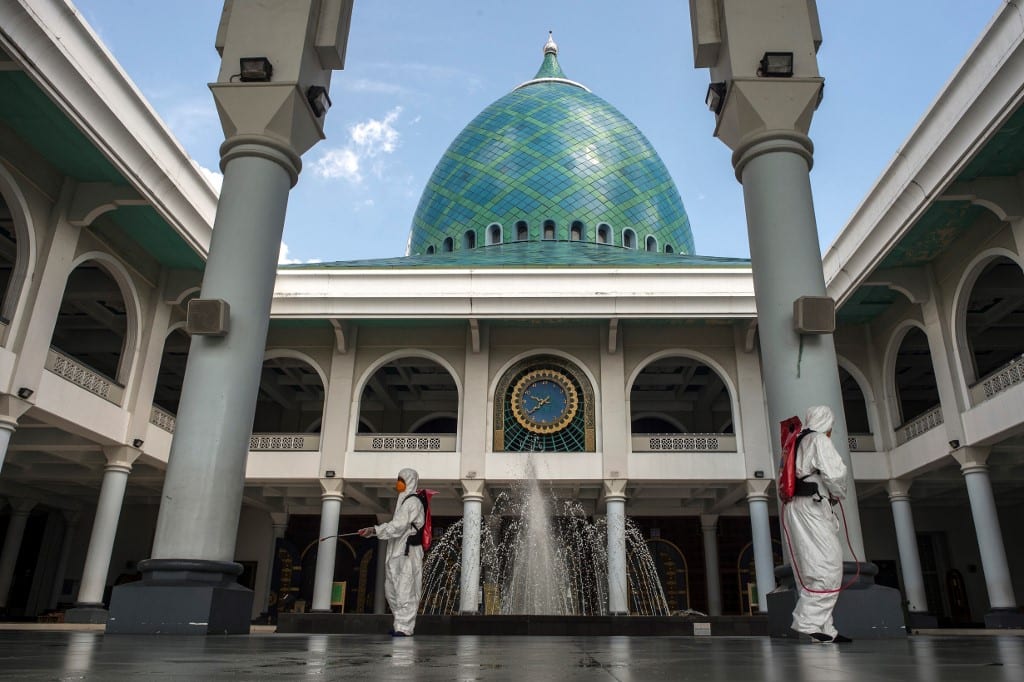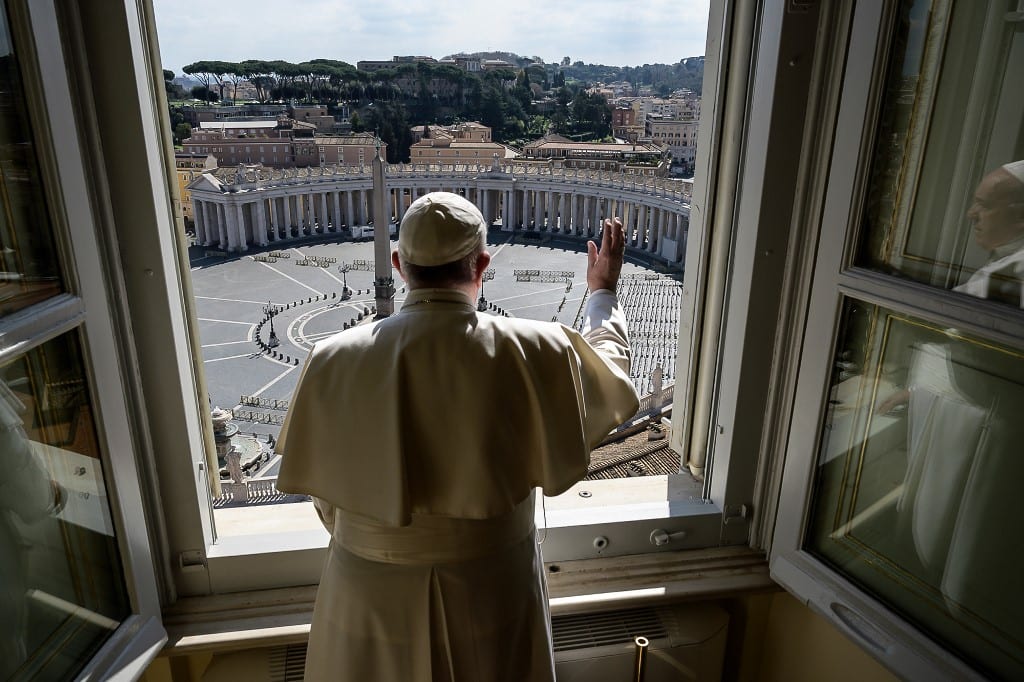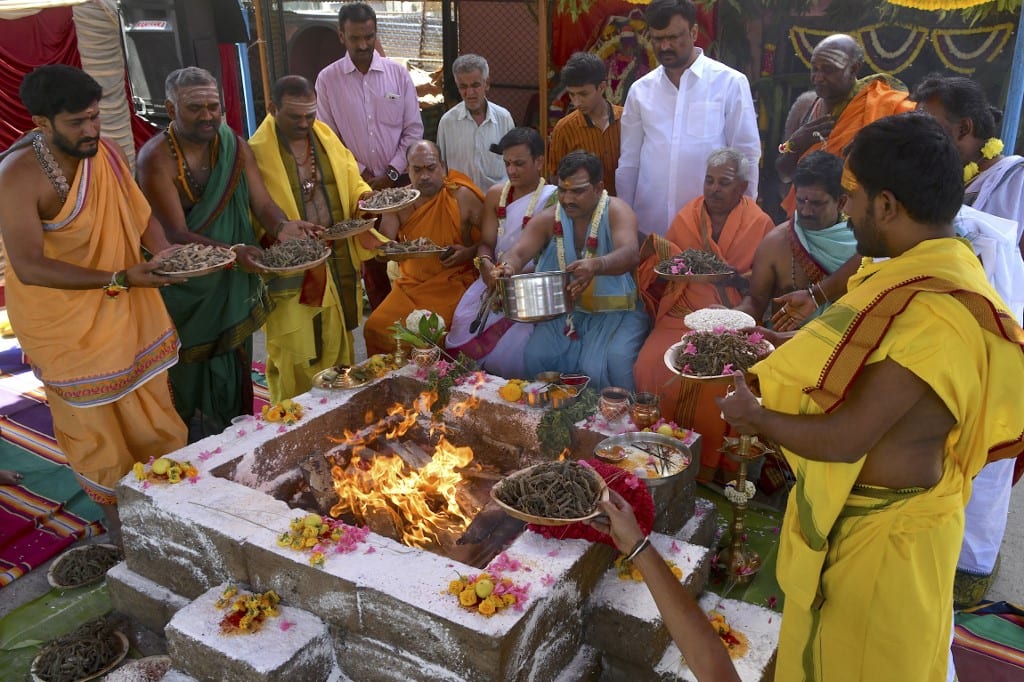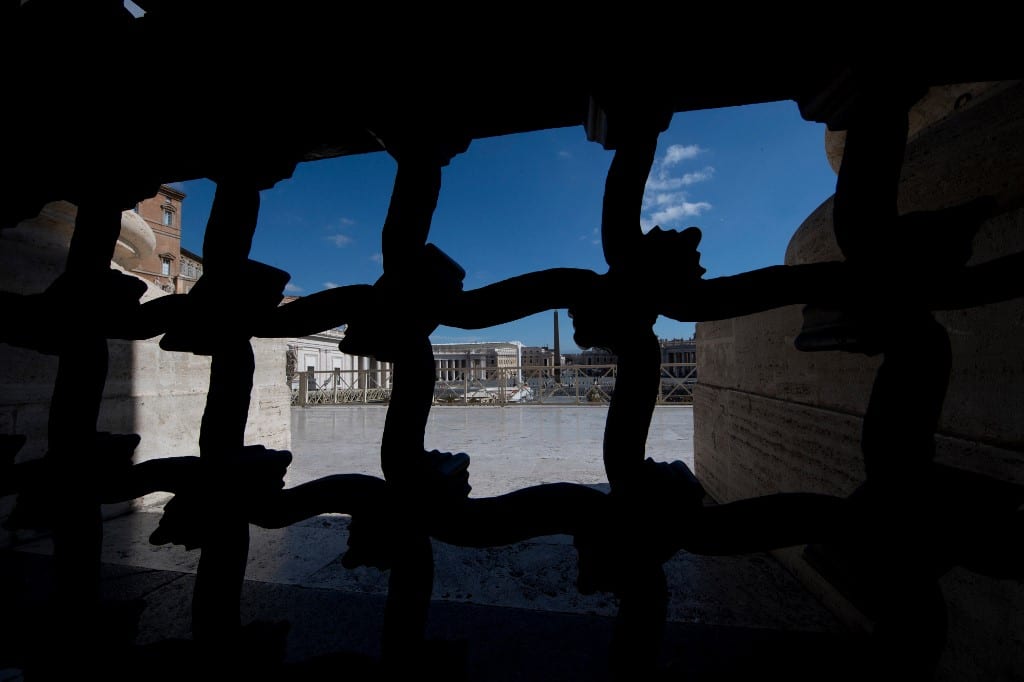With the ferocious spreading of the Corona virus, religion has found its way on the frontlines of the current panicked global conversation. This is not surprising; by nature these doctrines find themselves intersecting a viral pandemic on several levels.
The most blatant junction is the major religions’ ritualistic gathering of human bodies, be it through shoulder-to-shoulder prayers at a mosque or through the mass chewing on wafers that are meant to represent the body of Jesus Christ.

Throughout the world, and more recently (thankfully) so in the Middle East, churches and mosques have shut their doors, even concluding their Adhan’s (prayer calls) with “pray in your homes”, instead of the usual “Haya 3ala salat” (rush to prayer). Saudi Arabia has banned travelling, blocking millions of pilgrims from access to the holy sites of Mecca and Medina. Pope Francis delivered the Angelus prayer on a live stream on the internet this Sunday rather than in St. Peter’s Square in Rome.
More dire than the prohibition of large gatherings, is the psychological dilemma between spiritual convictions and scientific certainties, which has highlighted the longtime deepening divide on the spectrum of religious extremism and modern selective philosophies.
This is because all of a sudden, the religious individual found himself at a crossroads. On the one hand, medical experts are recommending social distancing, the furthest option from the reality of assembly in a Godly place of worship. On the other, if one’s religion has for years only guaranteed satisfactory results from Godly prayer under the proper places of worship, how could one successfully pray for protection from this plague? If God is our only salvation from these diseases, what will He think when we shut down these holy locations, and ban many from His devotion?


The worldwide shutdowns of mosques, churches and synagogues has garnered mixed reactions. Many were outraged at their closure, at a time they deemed most critical to spend asking God for mercy and health, while others expressed frustration at the delay in their closure. At a time when the globalized world has allowed for a large range of flexibility in terms of the Muslim or Christian identity, the Corona virus has now, more than ever, highlighted a rift as old as time, amongst the anti-religious and the religious, but perhaps more importantly, among the religious and the extremists.
A possible point of departure between the two, is how far their faith extends; is their faith in God, certain Saints, prophets or the like, solely strong enough for them, or elderly members of their family to defeat a devastating virus? The valley between extremism and piety lies between yes and no. From those hiding indoors and reciting the Qur’an, to those licking shrines in Iran, the segmentation of faith is clearer than ever, and so is the fear arising from witnessing the extremism. This is not to say that this divide hasn’t always existed, but rather that it is now inescapable.
From those hiding indoors and reciting the Qur’an, to those licking shrines in Iran, the segmentation of faith is clearer than ever, and so is the fear arising from witnessing the extremism.
As easy and duly entertaining as it is, to circulate videos of radical worshippers appearing to challenge this intensely infectious disease, the time has come to realize that is no longer sufficient to distance ourselves from these realities. If the rate of dissemination of the COVID-19 virus taught us anything, it’s that we are highly reliant on the unanimous compliance of every last human being within whatever borders we reside in to protect those who are at risk (i.e. the elderly or weak-immunity individuals). This means, sneering at those with extremist tendencies has extremist consequences.
When convictions run deeper than fear, those who are deprived of their spiritual practices will posit an intense reaction, and will find different ways to fulfill their needs. In South Korea, a cult-like church named the Shinchenonji Church of Jesus in the city of Deagu, is said to be blamed for causing a majority of the spread of the virus in South Korea for inciting its followers to meet up in small secret worshipping sessions despite the government’s quarantine efforts.
In Italy, faithful Catholic groups organize underground meetings with priests in the catacombs of Rome on social media or through word of mouth, so many of which occurring that religious authorities have yet to contain the phenomenon.


In India, a major ‘cow urine’ drinking event incurred over the weekend, organized by Swami Chakrapani, the President of the Akhil Bhrarat Hindu Mahasabha, which had 100s gathered and convinced that COVID-19 is a virus taking revenge on those who eat meat.
Iran’s holy city of Qom, which usually receives around 20 million Shiite pilgrims annually, was the starting point and now the epicenter of the virus in Iran; thousands of pilgrims were allowed to inhabit the shrines around Qom until the very last second. The logic was grounded in, again, faith: how could the holiest location in all the country contract a plague? In religious terms, what does that say about the worshippers and their God?
The idea is, even when extremist ideas are very distant from our own imaginaries, they are rooted in very real fears, ones we cannot ignore for our own sake. During desperate times, survival instincts tend to inhabit mindsets and situations often turn ugly; it is vital at this time to draw the line between religious preferences, extremist attitudes and decisions taken that could affect all of our safety. Governments while keeping in line with the strict quarantine rules should find ways to accommodate and reach a compromise for those in need of their spiritual fix, as now is not the time to be fueling more extremism.
The internet has recently, among other major benefits during this global quarantine, offered a giant helping hand to organized religions everywhere. Religious families are streaming religious music, prayers, and sermons on YouTube, as well as tuning in to their Church’s livestreams. Could the same be done for the religions and the communities present in the Middle East?








